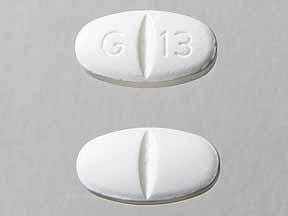Gabapentin is a medication primarily used to treat nerve-related conditions such as neuropathic pain, seizures, and sometimes anxiety disorders.
Gabapentin (Neurontin) is approved for seizures and nerve pain after shingles. It’s also used for many off-label conditions. Sexual side effects from gabapentin aren’t common. But they’re possible and include decreased sex drive (libido) and trouble getting or keeping erections (erectile dysfunction).
If you’re taking gabapentin and experiencing sexual problems, talk with your prescriber. They can help you determine if gabapentin is the cause or if it’s something else. If your sexual side effects are due to gabapentin, you may need to lower your dose or stop it altogether. But don’t make any changes without talking to your prescriber first.
- Gabapentin (Neurontin) is FDA approved to treat seizures and nerve pain from shingles. But it’s often used for off-label reasons, such as nerve pain from diabetes. It can cause sexual side effects, but it’s rare.
- Gabapentin sexual side effects include decreased sex drive, trouble reaching orgasm, and erectile dysfunction.
- Sexual problems can occur for many reasons. So if you’re having sexual changes while taking gabapentin, it may not be the medication. Still, talk to your prescriber if you’re experiencing bothersome changes in your sex life.
Gabapentin can cause sexual side effects, but they are relatively uncommon and not as well-documented as those associated with other medications, such as antidepressants. Here’s an overview:
1. Reported Sexual Side Effects
- Reduced Libido (Sex Drive): Some users may experience a decrease in sexual desire.
- Erectile Dysfunction (ED): Difficulty achieving or maintaining an erection has been reported in a small number of cases.
- Delayed Orgasm or Anorgasmia: Difficulty reaching orgasm or the inability to do so.
- Changes in Sexual Satisfaction: Reduced pleasure or sensitivity during sexual activity.
2. Frequency and Severity
- These effects are relatively rare, and most people taking gabapentin do not experience significant sexual dysfunction.
- When side effects occur, they are often dose-dependent, meaning higher doses might increase the likelihood of sexual side effects.
3. Mechanism Behind Sexual Side Effects
- Gabapentin may affect the central nervous system in ways that impact sexual function, possibly by altering the balance of neurotransmitters like serotonin or dopamine.
- It can also cause sedation, fatigue, or dizziness, indirectly reducing sexual interest or performance.
4. Individual Variability
- Not everyone will experience these effects. Factors like age, baseline sexual health, and other medications being taken can influence whether sexual side effects occur.
5. Management
- Discuss with a Doctor: If you experience sexual side effects, consult your healthcare provider. They might adjust the dose, switch medications, or suggest other strategies.
- Lifestyle Changes: Managing stress, improving sleep, and addressing any underlying conditions can help counteract sexual dysfunction.
Sexual side effects aren’t common with gabapentin, but they’re possible. Here, we’ll explain what’s known about gabapentin sexual side effects and how to manage them if they happen to you.
Does gabapentin cause sexual side effects?
Not usually, but it’s possible. There have been reports of gabapentin causing sexual side effects, including:
- Changes in libido
- Ejaculation problems
- Difficulty reaching orgasm
However, many reports of sexual problems with gabapentin involve a single person or just a few people. And when it comes to your sexual health, many factors can come into play.
For example, many medical conditions can cause sexual problems, including several of the conditions gabapentin treats. Examples include:
- Hot flashes during menopause
- Epilepsy (seizure disorder)
- Diabetic neuropathy
- Anxiety-related disorders
- Chronic pain, including fibromyalgia and nerve pain
- Alcohol use disorder
- Insomnia (trouble sleeping)
Several medications can also impact your sex life. Examples include opioids, benzodiazepines, and some seizure medications.
How common are sexual side effects with gabapentin?
It’s uncommon to experience sexual side effects from gabapentin. If you’re taking gabapentin and having sexual problems, there’s a chance that gabapentin isn’t the cause. About 40% of women experience sexual problems at some point in their lives. And over 50% of men 40 years and older have symptoms of erectile dysfunction or ED (trouble getting or keeping an erection).

That being said, gabapentin may have some effect on sexual functioning. So if you’re experiencing sexual problems with this medication, it’s worth talking to your prescriber about. This may feel uncomfortable or intimidating. But having the conversation can help you figure out what’s going on so your concerns can be addressed. Your prescriber may be able to recommend several tips to try at home, therapies, or medications to help.
Sexual side effects of gabapentin in men
Erectile dysfunction is the most commonly reported sexual side effect in men. A 2022 review found 139 reports of erectile dysfunction believed to be caused by gabapentin, over a 10-year period.
Still, the link between gabapentin and erectile dysfunction isn’t clear. Other seizure medications, such as carbamazepine (Tegretol) and topiramate (Topamax, Eprontia), are considered more likely to cause sexual problems than gabapentin.
Gabapentin’s effects on brain chemistry might cause sexual side effects in several ways:
- Boosting a natural chemical in the body called gamma-aminobutyric acid (GABA): Increasing GABA can interfere with having an erection or orgasm.
- Changing how nerves communicate with each other: This may interfere with the relaxation of smooth muscle in the penis, which can block an erection from forming.
- Increasing serotonin: Gabapentin increases serotonin, which is another brain chemical. Too much serotonin could lead to ED symptoms as well.
Sexual side effects of gabapentin in women
There are reports of gabapentin causing orgasm difficulties in women. On the other hand, there are some cases where gabapentin may improve sexual functioning.
To put it simply, if you have a health condition that causes sexual problems, and gabapentin effectively treats this condition, your sexual issues may improve.
For example, vulvodynia is a condition involving stinging pain and a burning ache in the vulva area. It can cause low desire and painful sex. It can also lead to vaginismus (tightening of the vaginal muscles), which can cause painful sex. But gabapentin may help. One placebo-controlled study of 66 women with vulvodynia found that gabapentin use led to improvements in sexual desire, arousal, and satisfaction.

Do sexual side effects from gabapentin go away?
If you experience sexual side effects from gabapentin, they may not go away on their own. Your prescriber may recommend decreasing your dose or stopping gabapentin altogether to see if your symptoms improve. If your sexual issues remain, it’s likely that gabapentin isn’t the cause.
How can you manage sexual side effects from gabapentin?
If gabapentin is determined to be the cause for your sexual issues, lowering your dose or stopping it altogether may be the best solution. But don’t make any changes without talking to your prescriber first.
Stopping gabapentin may not be an option. In these situations, there may be other possibilities. For example, medications like Viagra (sildenafil) and Cialis (tadalafil) are the go-to treatments for erectile dysfunction. Your prescriber may recommend taking these along with gabapentin.
When are sexual side effects from gabapentin dangerous?
Gabapentin has been linked to rare reports of priapism — painful erections lasting 4 or more hours. Priapism is more likely if you take gabapentin with other medications that can cause it, too, like antidepressants or ED medications.
Talk with your prescriber if you have an erection that doesn’t go away. But if it’s been 4 hours, get medical attention right away. Treatment may be needed to prevent permanent damage.

